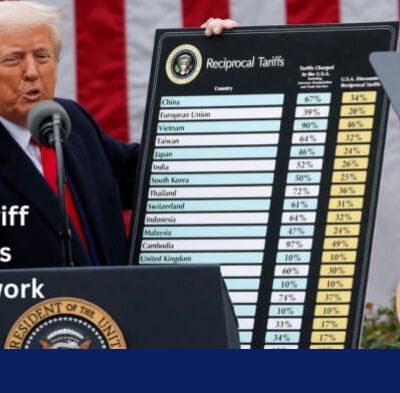Image source, Getty Images
Turkey has suspended all trade with Israel over its offensive in Gaza, citing the “worsening humanitarian tragedy” in the strip.
The Turkish trade ministry said the measures would be in place until Israel allowed an “uninterrupted and sufficient flow” of aid into Gaza.
Trade between the two countries was worth almost $7bn (£5.6bn) last year.
Israel’s foreign minister accused Turkish President Recep Tayyip Erdogan of acting like a “dictator”.
Israel Katz said on X that Mr Erdogan was “disregarding the interests of the Turkish people and businessmen and ignoring international trade agreements”.
He added that he had instructed the foreign ministry to find alternatives for trade with Turkey, with a focus on local production and imports from other countries.
Turkish Trade Minister Omer Bolat criticised Israel’s “uncompromising attitude” towards a ceasefire, as well as the humanitarian situation in the southern Gaza city of Rafah: “Turkey has suspended all export and import with Israel until a permanent ceasefire is established and the aid into the Gaza is allowed without any interruption.”
In 1949, Turkey was the first Muslim-majority country to recognise Israel. But relations have worsened in recent decades.
In 2010, Turkey broke off diplomatic ties with Israel after 10 pro-Palestinian Turkish activists were killed in clashes with Israeli commandos who boarded a Turkish-owned ship trying to break Israel’s maritime blockade of the Gaza Strip.
Relations were restored in 2016, but both countries expelled each other’s top diplomats two years later in a dispute over Israel’s killing of Palestinians amid protests on the Gaza-Israel border.
Mr Erdogan has become increasingly strident in his criticism of Israel since the deadly Hamas attack on Israel on 7 October last year.
He has repeatedly criticised Israeli Prime Minister Benjamin Netanyahu, comparing him to Adolf Hitler, Benito Mussolini and Joseph Stalin and dubbing him “the butcher of Gaza”.
Mr Netanyahu has said Turkey’s leader is the last person who can preach morality to Israel. In March he said President Erdogan “supports the mass murderers and rapists of Hamas, denies the Armenian genocide [and] massacres Kurds in his own country”.
Image source, EPA-EFE/REX/Shutterstock
The Turkish leader has for months come under domestic political pressure to announce measures against Israel, from both opponents and allies.
His ruling AK party suffered its worst defeat in two decades in local elections at the end of March, and many religious voters supported the Islamist New Welfare party, which had called for hardline measures against Israel.
Not long after the vote, Turkey imposed restrictions on 54 products being exported to Israel, from iron and steel to jet fuel, pesticides and construction equipment.
The trade ministry in Ankara said on Thursday that the action was now being extended to all exports and imports. Israel was Turkey’s 13th biggest export market in 2023, receiving 2.1% of Turkish exports last year. Turkey was Israel’s fifth biggest source of imports last year.
Israel has come under increasing criticism for conditions in the Gaza Strip. A UN-backed assessment said last month that 1.1 million people were facing catastrophic hunger and that famine was imminent in northern Gaza by May.
On Thursday, the White House said a pier built by the US military to facilitate the flow of aid into the territory would be open within days.
However, the UN says a maritime corridor can never be a substitute for delivery by land, and that land routes are the only way to bring in the bulk of supplies needed.
Earlier this week, Israel reopened the Erez Crossing into the northern Gaza strip for aid convoys, under pressure from its Western allies and following repeated appeals from international aid organisations.
However, Jordan said some of its aid lorries were attacked by Israeli settlers before reaching the crossing.
The UN’s most senior human rights official, Volker Türk, told the BBC that there was a “plausible” case that Israel was using starvation as a weapon of war in Gaza.
Israel denies limiting aid deliveries and has blamed the UN for failing to distribute it to those in need inside Gaza.
Israel launched a military campaign in Gaza to destroy Hamas in response to the group’s attack on southern Israel on 7 October, during which about 1,200 people were killed and 253 others were taken hostage.
More than 34,500 people have been killed in Gaza since then, according to the territory’s Hamas-run health ministry.
Mediators are awaiting a response from Hamas to the latest proposal.
It reportedly involves a 40-day ceasefire and the release of more than 30 Israeli hostages in exchange for many more Palestinian prisoners.





